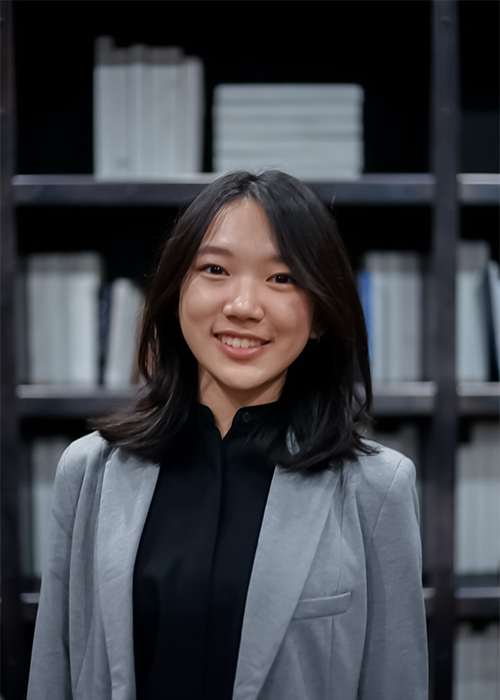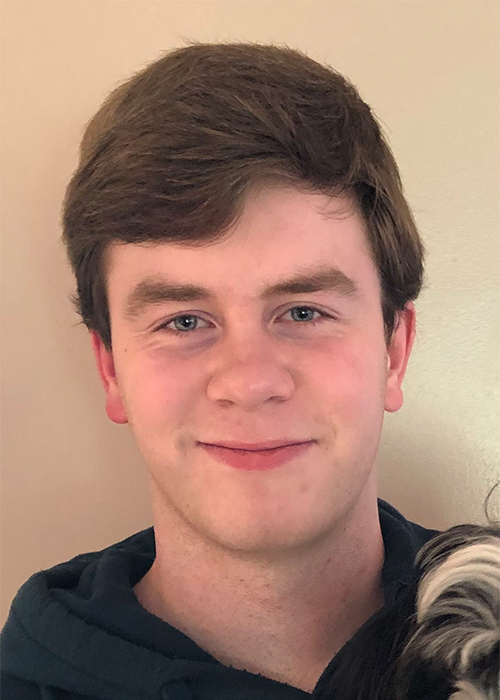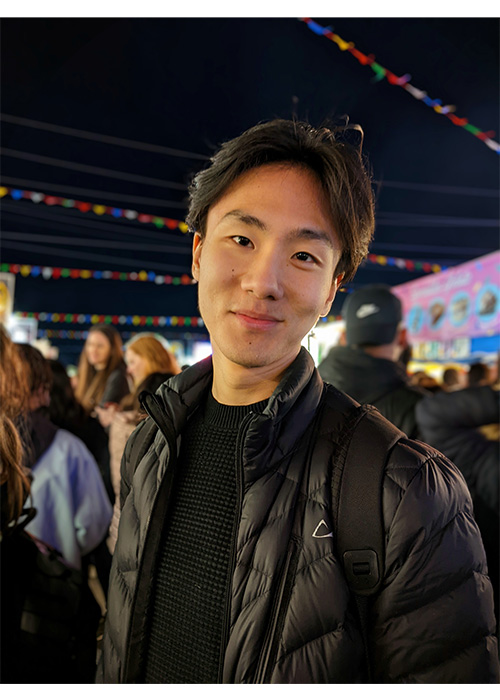In the fall of 2023 the department of chemistry welcomed 65 incoming graduate students who will be pursuing their research interests at all three of our UTM (Mississauga), UTSc (Scarborough) and St. George (downtown) campuses. Now that they have had a semester or more to get settled, we are asking a few of them about their research goals, the start of their journeys in chemistry, and why they chose U of T.

Kezia Erina Suryoraharjo
Kezia was born and raised in Indonesia, then moved to Canada to pursue her undergraduate studies at University of Toronto St. George campus. There she gained research experience through working on ligand design in the Song group, then working with digital microfluidics in the Wheeler lab. She is excited to come back to the department, at the UTM campus now, to study ultrasensitive detection for gynecological disease diagnostics in the Ogata lab.
Where did your interest in chemistry come from?
Since I was a kid, I've always loved learning how things work. Chemistry provides me with a fundamental understanding of the properties and behavior of matter, equipping me with tools to address challenges and develop solutions. I am particularly keen on disease diagnostics, and I anticipate applying chemistry to contribute to this field!
What did you look forward to most as you began your graduate studies here at U of T?
I'm eager to meet people and derive inspiration from their experiences and perspectives. Being immersed in an environment where there are so many great minds offers me the opportunity to gain fresh insights. It fuels my curiosity and drives me to excel in my own work.
Were there any surprises when you began?
I didn't expect I'd be so invested in my project! During my time as an undergrad, I met graduate students who were deeply passionate about their work. I didn't think I'd ever reach that level of enthusiasm. However, as I progressed with my own project, I found myself surprisingly immersed and excited about it.

Austin Hopkins
Austin obtained his Honours Bachelor of Science in Chemistry with Concentration in Medical Sciences at Lakehead University in Thunder Bay, Ontario. He went on to obtain his Master of Science in Chemistry under the mentorship of Dr. Jinqiang Hou, where his research was focused on the design and synthesis of LPA1-targeting small molecules for diagnostic and therapeutic purposes. Austin joins the department at UTSC under the supervision of Dr. Xiao-an Zhang and is looking forward to venturing into the field of porphyrin chemistry.
After doing your undergraduate studies at U of T, what was it that made you decide to continue your graduate studies here in the Department of Chemistry?
From a young age, I was curious about how the world works on a fundamental level, but of course, I did not have any of the answers. In high school, I got my first taste of the study of chemistry, and although it answered some of the questions that I had, it only spawned even more than I had begun with. I then enrolled in a chemistry program at Lakehead University in search of these answers, and the rest is history.
What were you looking forward to most about this next stage in your academic life?
I was primarily looking forward to a couple of different things. For starters, I was excited to be joining a world-class university with state-of-the-art research facilities that will allow me to continue to hone my research skills and contribute to the scientific community. I was also looking forward to the opportunity to meet other like-minded students and researchers and to build long-standing relationships in this community.
Have there been any surprises so far?
I was happily surprised by how receptive and tight-knit the chemistry community is at UTSC. Everyone here—from the graduate students, to the staff members, and all the way up to the professors—was very friendly and welcoming to me as a new graduate student at U of T, and I could feel that everyone is deeply passionate about their work.

Scott Kim
Scott completed his BSc in chemistry at Western University, where he got exposure to catalysis, inorganic synthesis, and computational chemistry. He is currently working with Dr. Anatole von Lilienfeld at the St. George campus, developing machine learning methods to more efficiently discover useful materials.
Where did your interest in chemistry come from?
My interest was sparked by my high school chemistry teacher, who encouraged learning and understanding over performance. Throughout undergrad, my interest turned into fascination as I learned about how far-reaching chemistry is; I increasingly saw things in my everyday life like food, medicine, and nature in a new light. I came to appreciate the diversity of toolkits that chemists have to tackle the endless variety of questions we face.
What were you looking forward to most as you began your graduate studies here at U of T?
I looked forward to approaching a new field in a city defined by its diversity and globality. I knew I would face many challenges, and I was excited to meet like-minded people from around the world to overcome these challenges with.
Were there any surprises?
The biggest surprises of grad school were the independence and support network given to grad students. The amount of freedom was surprising at first, but there are so many resources available to help you succeed, and the atmosphere and people in the graduate department are very friendly!


